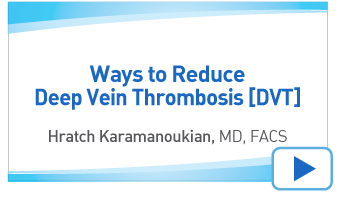
1. If you are scheduled to have a surgical procedure, notify your physician if you suffered from a deep vein thrombosis in the past.
2. While driving long distances, break up the trip with frequent rest stops every two hours to walk. This means walking for one or two minutes, walking around the car or exercising your lower legs.
3. If you are in a plane, calf stretching exercises at regular intervals will reduce the likelihood of developing deep vein thrombosis. Getting out of your seat and walking whenever you can, can also help reduce the risk of deep vein thrombosis.
4. Avoid sitting for a long period of time. Getting up and moving around once an hour even if it is for one or two minutes will reduce the likelihood of developing deep vein thrombosis.
5. When sitting, heel toe exercizes will also reduce the likelihood of developing deep vein thrombosis especially in jobs that require answering telephone calls or using computers.
6. Avoid drinking fluids such as alcohol, coffee and tea which cause dehydration and increase the risk of deep vein thrombosis. This risk factor is controversial in the literature.
7. If you have an inherited risk of clotting, also called thrombophilia, do not use birth control pills.
8. Get diagnostic blood work such as genetic testing to determine if you have an inherited risk of developing deep vein thrombosis. This is especially true if there is a history of deep vein thrombosis in your family. A formal discussion with your primary care physician, a vein specialist, or a hematologist may be very helpful.
9. If you have had an episode of deep vein thrombosis in the past, if you are pregnant, or have varicose veins, it may be very helpful to wear class I compression stockings on a daily basis. This should also be discussed with your vein specialist (phlebologist) or hematologist.
10. Cessation of smoking may also reduce the likelihood of developing deep vein thrombosis even though this is controversial in principle.
For more information contact Hratch Karamanoukian, MD FACS at the Vein Treatment Center or go towww.VeinsVeinsVeins.com or call 716-839-3638 if you are in the Buffalo Niagara region.
www.VeinsVeinsVeins.com and www.Veinguide.com are partners withwww.peacebridgehealthcare.com.
